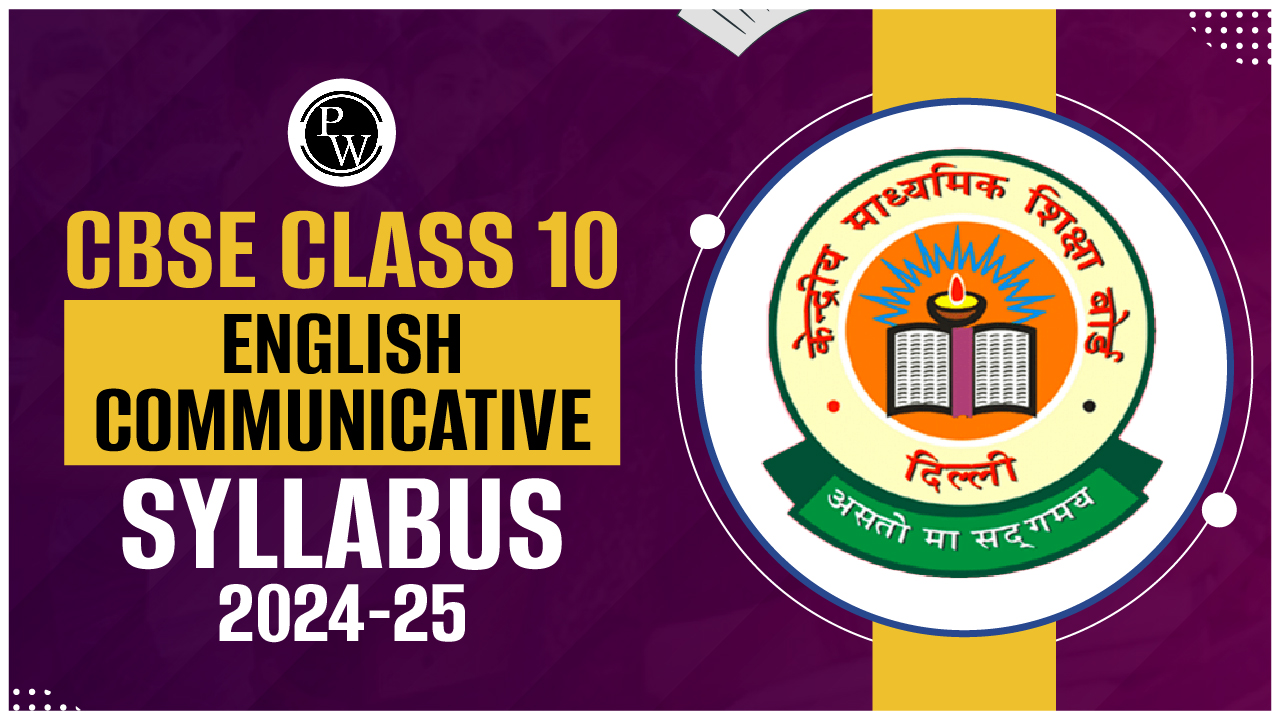Are 12th Marks Important for JEE Exams?

Are 12th Marks Important for JEE Exams: JEE Main 2026 will be held for students who want to take admission in engineering colleges after Class 12. Many students often ask, “Is 12th marks important for JEE?” The truth is, Class 12 marks are not used to calculate your JEE Main score or rank. According to the rules, students must get at least 75% marks in the 12th or be in the top 20th percentile of their board to get admission in some government engineering colleges like NITs and IIITs.
So, even if you score well in JEE Main, you also need to meet the JEE Main eligibility marks in 12th to get into a good college. That’s why preparing for both board exams and JEE is important for every student. Check out the article below to learn Are 12th Marks Important for JEE Exams.
Check Out: PW JEE Books
JEE Main Exam
The Joint Entrance Examination (JEE) is held in two main stages: JEE Main and JEE Advanced. JEE Main is the first stage and is taken by lakhs of students every year after Class 12. It tests students in Physics, Chemistry, and Maths, based on the NCERT syllabus. Those who perform well in JEE Main and meet the required cut-off are allowed to appear for the second stage, JEE Advanced. Check out the below table for some JEE Main details:-
|
Aspect |
Information |
|
Mode of Examination |
Online mode (Computer-Based Test) |
|
Number of Sessions Per Year |
Conducted twice annually- January and April |
|
Frequency of JEE Main |
Held 2 times in a year |
|
Available Papers |
Paper 1: For B.E./B.Tech Paper 2A: For B.Arch Paper 2B: For B.Planning |
|
Subjects in Paper 1 |
Physics, Chemistry, Mathematics |
|
Question Format |
Combination of MCQs and Numerical Value Type Questions |
|
Total Number of Questions (Paper 1) |
90 questions in total (30 from each subject; attempt any 25 per subject) |
|
Total Marks (Paper 1) |
300 marks (100 marks for each subject) |
|
Marking Scheme |
+4 for every correct answer -1 for incorrect MCQ 0 for unattempted |
|
Exam Duration |
3 hours |
|
Eligibility for JEE Advanced |
Must clear JEE Main and secure the required cutoff rank |
|
Number of Attempts for JEE Advanced |
Maximum of 2 attempts in 2 consecutive years |
JEE Main Eligibility Criteria
Before applying for JEE Main, it is important to understand who can appear for the exam and what rules they need to follow. Many students wonder, “Does 12th marks matter in JEE?” The answer is yes, but not for the JEE Main rank. However, your Class 12 percentage does matter if you want to get admission in top engineering colleges like NITs and IIITs.
According to the latest rules, the minimum percentage for JEE Mains admission is 75% in Class 12, or you must be in the top 20th percentile of your board exams. These marks are not used to calculate your JEE score but are needed during counselling and admission. So, while preparing for JEE, students should also focus on their board exams to meet the percentage required for JEE Mains admissions.
|
Eligibility Factor |
Details |
|
Educational Qualification |
Must have passed Class 12 or equivalent exam in 2024 or appearing in 2026 |
|
Minimum Age Limit |
No age limit |
|
Subjects Required in 12th |
Physics, Mathematics, and one of Chemistry/Biology/Biotechnology/Technical Vocational Subject |
|
Minimum Percentage for JEE Mains |
75% marks in 12th (for admission to NITs, IIITs, CFTIs) |
|
SC/ST Minimum Percentage |
65% marks in 12th (for admission to NITs, IIITs, CFTIs) |
|
Number of Attempts |
3 attempts in 3 consecutive years |
|
Attempt Limit Per Year |
2 sessions per year |
|
Percentage Required for JEE Mains Admission |
Must score 75% or be in top 20 percentile of the respective board |
Check Out: JEE Previous Year Papers
How Much 12th Percentage Required for JEE?
If you're aiming for admission to IITs, it's not just about cracking the exam, you also need to meet certain marks criteria in your Class 12 board exams:-
-
Percentage required for JEE Mains: There is exact minimum percentage required in Class 12 to appear for JEE Main exam.
-
Eligibility for admission after JEE Main: To get admission in top colleges like NITs, IIITs, and CFTIs, students must have:
-
75% aggregate marks in Class 12 for General and OBC categories
-
65% aggregate marks in Class 12 for SC, ST, and PwD categories
-
Top 20 percentile rule: Instead of a percentage, students can qualify if they are within the top 20th percentile of successful candidates in their board exams, according to their category.
Are 12th Marks Important for JEE Exams?
While 12th marks are not required to appear for JEE Main, they play an important role when it comes to admission in top engineering colleges. You can write the JEE Main exam regardless of your Class 12 marks. However, to get admission in IITs, NITs, IIITs, and other premium institutes, you need to have at least 75% marks in Physics, Chemistry, and Mathematics in your Class 12 board exams.
This 75% minimum requirement applies no matter what your JEE Main rank or percentile is. So, even if you clear JEE Main with a good rank, your board marks must meet this eligibility criterion to secure admission.
Additionally, to be eligible for JEE Main 2025, you must have passed your Class 12 exam in 2023 or 2024, or be appearing in the 2025 exams.
Check Out: JEE Question Banks
How to Prepare for JEE Main Along with Class 12th Boards?
Preparing for JEE Main in Class 12 is a crucial step for students aiming for top engineering colleges. Class 11 and 12 form the base for JEE, so your study plan should be well-organised, balancing board exams and JEE syllabus preparation. Here are some important tips that will help in both preparation for CBSE Class 12 Boards and JEE Main exam:-
1. Understand the JEE Main Exam Pattern and Marking Scheme
Knowing the exam pattern helps you prepare strategically. JEE Main Paper 1 includes Physics, Chemistry, and Mathematics with 90 questions (30 per subject).
-
Each correct answer gets +4 marks, and each wrong MCQ deducts 1 mark.
-
You need to attempt at least 25 questions in each subject.
-
The total marks are 300, and understanding this helps you plan which questions to focus on during practice.
2. Understand the Importance of Class 11 and 12 Basics for JEE
Class 11 and 12 are the foundation years for JEE Main preparation. Many topics in Class 12 are built on concepts taught in Class 11, so revising and understanding Class 11 topics is essential before moving to advanced Class 12 topics.
-
For example, topics like Electrostatics, Mechanics, and Algebra start in Class 11 and continue in Class 12 with more depth. So, while studying a Class 12 chapter such as Electrochemistry or Calculus, it’s important to recall the basics from Class 11.
-
Start by revising your Class 11 notes alongside your Class 12 syllabus.
-
Complete the Class 11 concepts properly so you won’t struggle with advanced topics later.
-
Focus on topics that overlap between the two years, like Vectors, Coordinate Geometry, and Thermodynamics.
3. Create a Balanced Study Plan for Boards and JEE
It’s important to manage time well between Class 12 board exam preparation and JEE Main studies.
-
Allocate daily study hours for both the board syllabus and JEE topics.
-
Prioritise chapters that are important for both board exams and JEE, like Organic Chemistry, Calculus, and Mechanics.
-
Practice past board papers and JEE mock tests simultaneously to improve speed and accuracy.
4. Make Organised and Effective Notes
Since Class 12 boards and JEE Main preparation happen simultaneously, organising your notes properly is very important.
-
While studying, write short, clear notes for every topic covering important formulas, concepts, and shortcuts.
-
Use separate notebooks or digital notes for boards and JEE to avoid confusion.
-
Highlight important points like JEE Main eligibility marks in 12th or the minimum percentage for JEE mains in your notes to keep them fresh in your mind.
5. Focus on the NCERT Books First
NCERT textbooks for Class 11 and 12 are the backbone of JEE Main preparation. Most questions in JEE Main come from NCERT concepts, so don’t ignore these books.
-
Thoroughly study the NCERT chapters for Physics, Chemistry, and Mathematics.
-
Solve all NCERT exercises and examples carefully.
-
NCERT helps you build strong basics, which are crucial to answer JEE Main questions correctly.
-
Once you finish the NCERT, then move on to advanced study materials.
6. Use Advanced Books and Study Materials Like PW
After completing NCERT, it’s time to practice advanced problems and theory as per the JEE syllabus. PW (Physics Wallah) provides excellent revision books and study materials, especially for JEE Main and Advanced.
-
These books cover advanced topics not detailed inthe NCERT, helping you improve problem-solving skills.
-
Use PW’s video lectures for clearing doubts and better conceptual clarity.
7. Focus on Important Topics from Class 11 and 12
Not all topics carry the same weight in the JEE Main exam. So, focusing on the most important chapters from both Class 11 and 12 can help you score better. Many of these topics are repeated in exams every year and are also essential for board exams.
When you’re revising or planning your study schedule, try to give more time to these high-scoring areas.
|
Subject |
Class 11 Important Topics |
Class 12 Important Topics |
|
Physics |
Laws of Motion, Work Energy Power, Rotation, Gravitation, Thermodynamics, Waves |
Electrostatics, Current Electricity, Magnetism, Alternating Current, Optics, Modern Physics |
|
Chemistry |
Atomic Structure, Chemical Bonding, Thermodynamics, Equilibrium, Hydrocarbons |
Haloalkanes and Haloarenes, Alcohols and Phenols, Biomolecules, Electrochemistry, Coordination Compounds |
|
Maths |
Sets, Relations, Trigonometry, Quadratic Equations, Coordinate Geometry, 3D Geometry |
Calculus (Limits, Continuity, Differentiation, Integration), Vectors, Matrices and Determinants, Probability |
Read More: How Many Attempts for JEE Mains Exam?
JEE Main Exam FAQs
1. Is 12th marks important for JEE Main exam?
No, Class 12th marks are not required to appear for JEE Main. Anyone who has passed or is appearing for Class 12 can write the exam.
2. Does 12th marks matter in JEE Advanced eligibility?
Yes, to be eligible for IIT admission through JEE Advanced, you must have either 75% marks (for General/OBC) or 65% (for SC/ST/PwD) in Class 12 or be in the top 20 percentile of your board.
3. What is the minimum percentage required in 12th for JEE Mains?
For JEE Main, there is no minimum percentage needed to appear. But for college admissions like NITs or IIITs, 75% or top 20 percentile rule may apply.
4. Can I get admission in NIT with less than 75% in 12th?
Usually no, unless the top 20 percentile rule saves you. Many NITs follow the 75% rule strictly for General and OBC students.
5. What if I fail in one subject in 12th but clear JEE Main?
You need to pass all subjects in Class 12 to be eligible for admission, even if you clear JEE Main.










